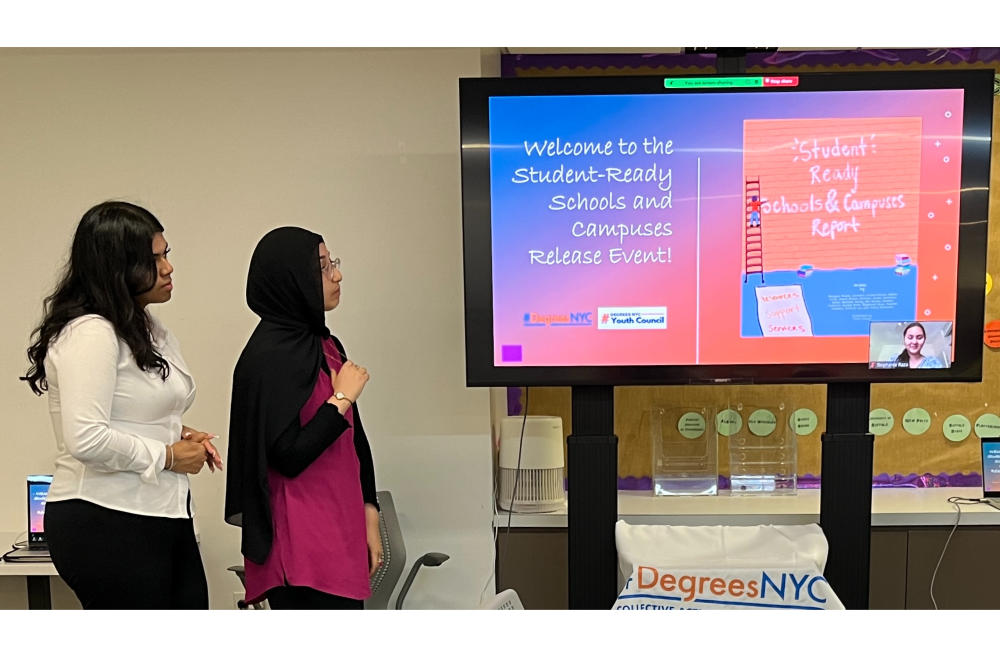
Youth-Led Research Finds Room for Improvement
We often hear alarming talk about students not being ready for college. But are colleges and schools ready for students—that is, all the different kinds of students who seek them out?
That’s the subject of a new youth-led study released by #DegreesNYC, and their findings are sobering.
“We’re living in a world that is more connected than ever but students feel more disconnected and burned out,” said researcher and recent college graduate Stephanie Raza at the launch of the Student-Ready Schools and Campuses Report. “A lot of students don’t even know where to go to talk about these issues.”
Students expressed a desire for more community-building on campus. Forty-two percent felt their college could foster inclusivity by creating a more supportive, respectful and fair environment. They said they wanted more on-campus events beyond Orientation Week—especially activities representing diverse races and identities.
“Because so many students in New York City are commuters it can reduce involvement in activities,” said Raza. “Also, there’s a major problem where students don’t know these events are happening and have to figure it out through word of mouth or social media.”
Other challenges the research team uncovered included difficulty finding quiet spaces on campus for remote classes; insufficient support for learning new technologies; and poor communication by colleges.
“A lot of individuals stated that there were deadlines they weren’t aware of” because schools did not inform them in time, said researcher Tamima Rahman. In one case, CUNY gave students just three days’ notice to get a required COVID booster before the start of in-person classes.
The need for mental health services also ranked high. “Seventy-one percent desired an increase in support on campuses,” said researcher and rising sophomore Nermen Elkallini. “If it’s 71 percent we know there’s a problem to fix.”
“It should never come to a point where students are stuck on a waitlist. It should never come to a point where they have to have a mental health crisis to be moved up the list,” said Raza.
#DegreesNYC is a movement co-led by young people and education professionals to open doors to education in New York City. Data and Research Coordinator Rachel Bork said having students take the lead on the research was beneficial both for them and for the survey.
“When someone at 18 joins a Youth Participatory Action Research study they’re more likely to be civically engaged for the rest of their lives,” she explained. “It also improves the credibility of our research because they know the research topic better than anyone else.”